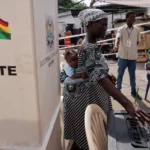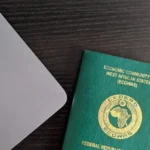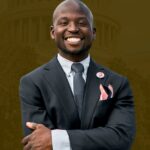Now that Mohammed Hayatudeen has come out to say he is a candidate to beat in the 2023 General Elections, under the banner of the Peoples Democratic party (PDP), a declaration he made during a news conference in Lagos early in March 2022 to mark the start of his “one thousand mile” journey to Aso Villa, it gives us the room to peep through his motives and panacea.
Born in 1953 in Bama, Borno State, Hayatudeen could be described as “the blue-eyed boy”, who attended the best schools the then northern Nigeria could offer.
- NIGERIA DAILY: How Genotype Tests Put Families In Jeopardy
- Reps seek humanitarian aid for Nigerians trapped in Ukraine
Having graduated from the Ahmadu Bello University, armed with a degree in Economics, and who, within a few years thereafter, he became the Managing Director of the Northern Nigeria Development Corporation (NNDC), a conglomerate arm of the state governments in the region.
Hayatudeen later went into banking and rose to become Managing Director of FSB, and later moved to the Central Bank of Nigeria (CBN), where he rose to become its deputy governor.
During all this time, he served in government committees, set up to look at how to reform the Nigerian economy. In short, Hayatudeen could be said to have paid his dues.
Sounding messianic, Hayatudeen told the press that Nigeria needed “an unusual kind of leader, fully equipped with the type of skills, character and experiences he possesses, to safely navigate the Nigerian people out of the stormy waters, to a much brighter and better future, reflective of the nation’s rich potential for greatness. “I believe I’m the person who can provide such uncommon leadership with clarity, conviction and dynamism”, he said.
Hayatudeen argued that Nigerians, given an enabling environment of “good public service delivery systems, liberated from red tape and abrasive rent-seeking culture, the Nigerian people can perform miracles”.
Above all, he believes that having travelled the lengths and breadths of Nigeria, and the world at large, he has gained sufficient insight as to what to do and when to do it, to change the country’s fortune.
Like other laissez-faire economists, Hayatudeen believes so much in market forces, free enterprise, and expansion of the frontiers of privatisation, deregulation and liberalisation of the economy to boost investors’ confidence. This kind of thinking exposes him to being seen as a member of the old, but liberal, brigade that still believes in the solutions put forward by Breton Woods Institutions, designed for Third World Countries, beginning in the late 1980s up to 2000, which all ended up as failures.
According to him, the PDP did well during Obasanjo’s era when it articulated “a clear governing philosophy dedicated to institutional building, transiting Nigeria to a market-based economy.
But Hayatudeen faces a lot of obstacles on his way to clinching his party’s ticket and later convincing Nigerians to elect him.
The party is divided as to where the ticket should be zoned to, with the South East insisting that it should produce the candidate for the 2023 elections. Some elites from the region have made it very clear that it is either the get the ticket for the presidential ticket or they dump the party.
Similarly, aspirants like Atiku Abubakar have worked so hard over the years to not only build the party but to have a very strong structure on the ground to ensure that when it comes to primary, he becomes the man to beat. How Hayatudeen will wrestle the PDP ticket from the Atiku’s remains to be seen.
One area that people will interrogate Hayatudeen’s candidature is the economy. This is obvious given his antecedents. But whether he will have the capacity to turn round the economy depends largely on how much the major actors believe in him and other external factors that daily influence our economy. One thing is certain, however, that he has a chunk of friends among the big players in the industry and banking sectors who may help him.
Talking about insecurity, which is the biggest concern to most Nigerians at the moment, the fact that he had only one paragraph on it shows that he is yet to grasp the drivers of insecurity in Nigeria, as an issue beyond those of economy.
The drastic shrinking of Lake Chad, a serious concern right at the backyard of his home state, Borno, by more than 80%, gives rise to the increase of herders/farmers clashes in the northern parts of Nigeria, which eventually shifted to the southern part.
Even though climate change is having devastating consequences on the rainfall and the environment, from which thousands of kilometres of fertile soils are being destroyed yearly, the water table is going down beyond easy reach, and these are the major drivers of poverty and conflicts particularly in northern Nigeria.
Therefore, anybody who wants to be president of this country must take into account the relationships between the environmental degradation, poverty and the ever rising conflicts we are witnessing.
Also, whoever wants to govern Nigeria must give the country a clearly defined road map on how to overhaul the education system, to enable ready and easy access to quality education to produce people with the innovations that would move the country forward.
The large number of unemployed youths we are talking about is as a result of a mismatch between what they studied and their expectations.
Therefore, if Hayatudeen truly wants to be a president, he will have to think about these and many other challenges Nigeria is facing.
Toro wrote from Zone 7 Abuja
 Join Daily Trust WhatsApp Community For Quick Access To News and Happenings Around You.
Join Daily Trust WhatsApp Community For Quick Access To News and Happenings Around You.


